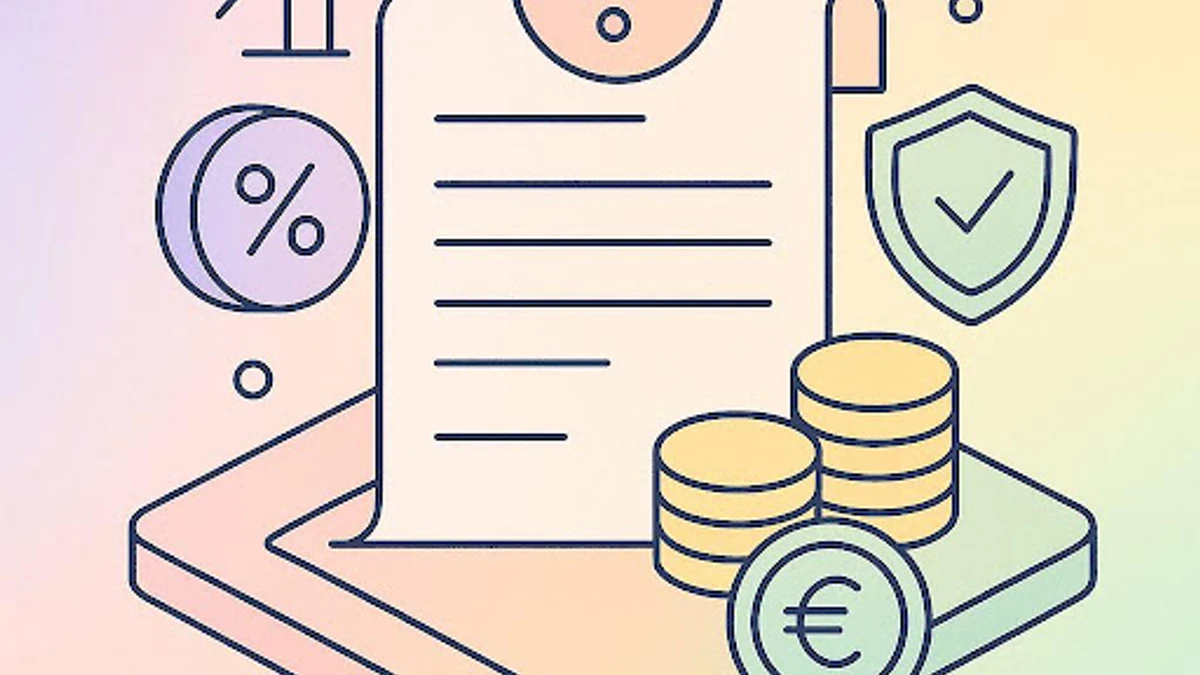Legal interest rate for unpaid invoices: definition, calculation, examples
Summarize this article with AI
Open the article in your preferred AI to summarize, explore and save it for later.

When a customer delays payment, you can charge interest to compensate for the delay. This is known as legal interest. Set by the French government, they vary according to the nature of the creditor (private or professional) and change every six months. But when should interest be charged? And how can you calculate them without error?
Here's what you need to know:
The legal interest rate is set by the State to calculate the interest due for late payment.
There are two rates: one for private individuals, the other for professionals.
It is updated twice a year (January and July) and depends on the ECB rate.
It applies in court or in the absence of a clause in the GCS.
Calculation formula: Amount due × (Rate / 365) × Days in arrears
Example: €1,000 at 8% over 30 days = €6.58 interest.
It does not replace the late payment penalties provided for in the GTC.
Remember to mention the rate on your invoices if you want to apply it.
An incorrectly applied rate can be contested or cancelled.
The current rates are available on service-public.fr and banque-france.fr .
Hero allows you to collect your invoices quickly online and avoid unpaid bills.
What is the legal interest rate?
Simple definition
The legal interest rate is a rate defined by the French government, used to calculate interest due on late payments .
It applies in particular to civil disputes, late payments between companies, or private claims.
Who sets the rate?
This rate is set by ministerial decree and published twice a year (on January 1 and July 1). It is calculated using a formula based on the rates applied by the European Central Bank (ECB).
Current rates are available on the government website .
What is the legal interest rate in 2025 (and beyond)?
There are two legal interest rates depending on the creditor's status:
A higher rate if the creditor is a private individual not acting for professional purposes.
A base rate if the creditor is a professional .
These rates are subject to change each semester depending on the economic context. They are available for consultation on the government website .
For example, in recent years, these rates have fluctuated between 3% and 13 depending on the period and profile concerned.
When does the legal interest rate apply to an unpaid invoice?
The legal interest rate applies:
When no rate is specified in the general terms and conditions of sale (CGV) or in the contract.
In case of legal proceedings to calculate the interest due from the date of formal notice.
When a private individual claims interest for unpaid bills (particularly for family or rental purposes).
Il does not automatically replace late payment penalties, if these have been properly provided for in your General Terms and Conditions. On the other hand, in the absence of a specific clause This is the minimum rate you can claim.
How to calculate legal interest on an invoice?
The calculation is based on a simple formula proportional to the number of days overdue :
| Amount due × (Legal interest rate / 365) × Number of days overdue |
|---|
Indicative example
Let's imagine an invoice for €1,000 incl. VAT, 30 days overdue, and an applicable legal interest rate of 8%: Interest = €1,000 × (8 / 365) × 30 =. 6,58 €
The rate can be adjusted according to the creditor's status and the period concerned.
What's the difference between the legal interest rate and late payment penalties?
Many people confuse these two notions, but they are the same thing. different logics :
Le legal interest rate applies by default or in court.
Visit late fees apply between pros if provided for in writing.
What are the risks of applying the wrong rate?
An incorrectly applied rate can lead to lose your rights or, worse, be contested by the customer.
Risks to be aware of :
If the rate is absent of the invoice or the General Terms and Conditions: you cannot claim anything.
If the rate is below the legal threshold (e.g.: < 3x legal rate between pros): the judge may consider it unenforceable.
If the rate is excessive (e.g.: 25% or more): it can be overturned in court for manifest abuse.
You must therefore stay within a reasonable range (generally between 10% and 20% per year) and to always mention the rate on the initial invoice .
Where can I find current legal interest rates?
Rates are officially published twice a year by the Ministry of the Economy.
To consult the current rates, go to :
Some sites also offer automatic simulators integrating the right rate for the right period.
What if you never got paid late again?
Rather than chasing late penalties, some companies choose to collect their invoices directly online on dispatch.
Solutions like Heropay allow, without subscription, to receive CB payments on your site or by payment link, with fixed fees from 0,4 % .
It's a simple way to reduce the risk of non-payment ... and never have to apply the legal interest rate.